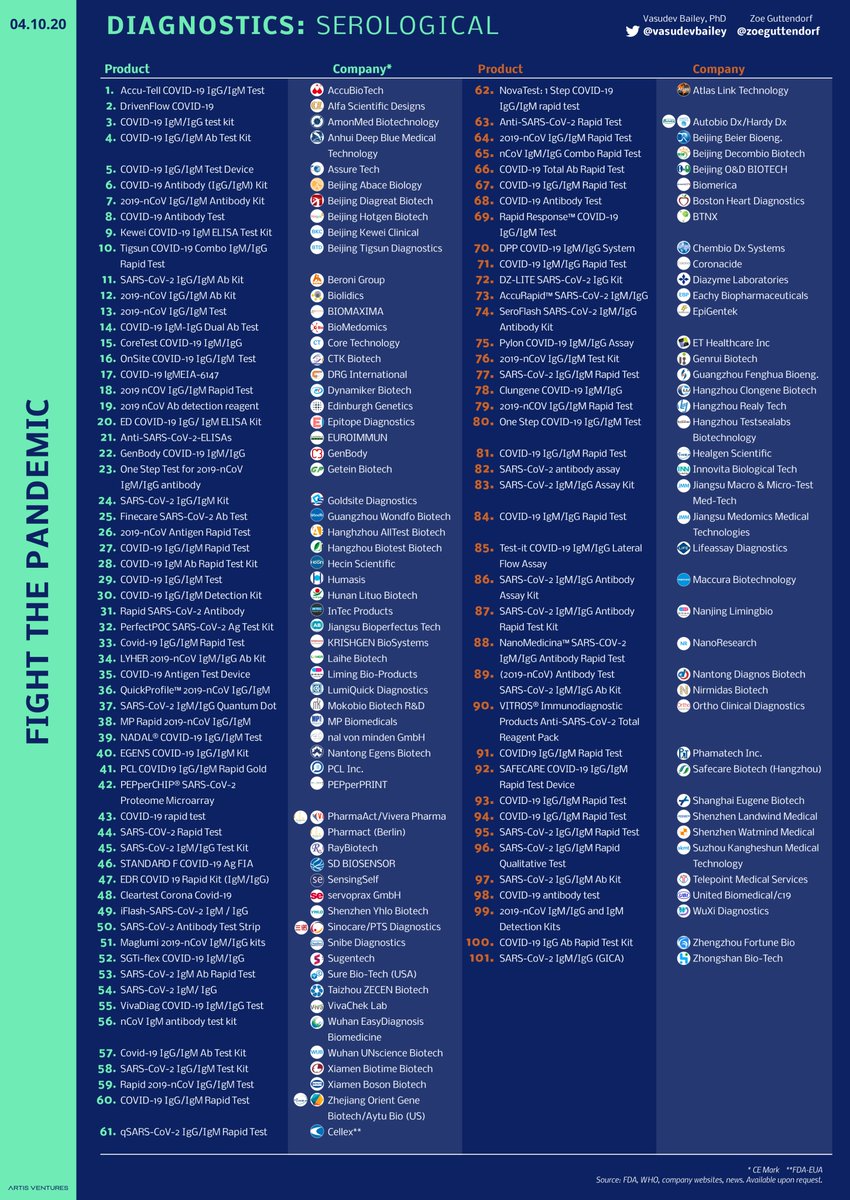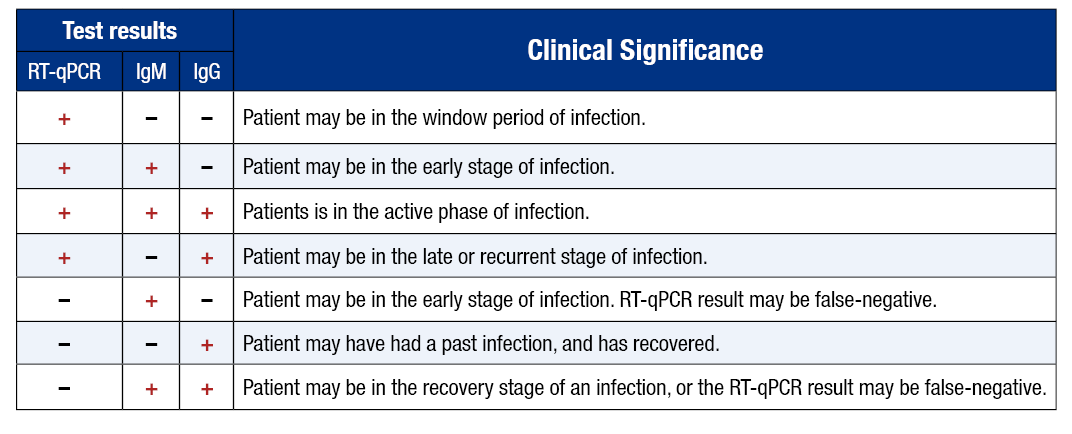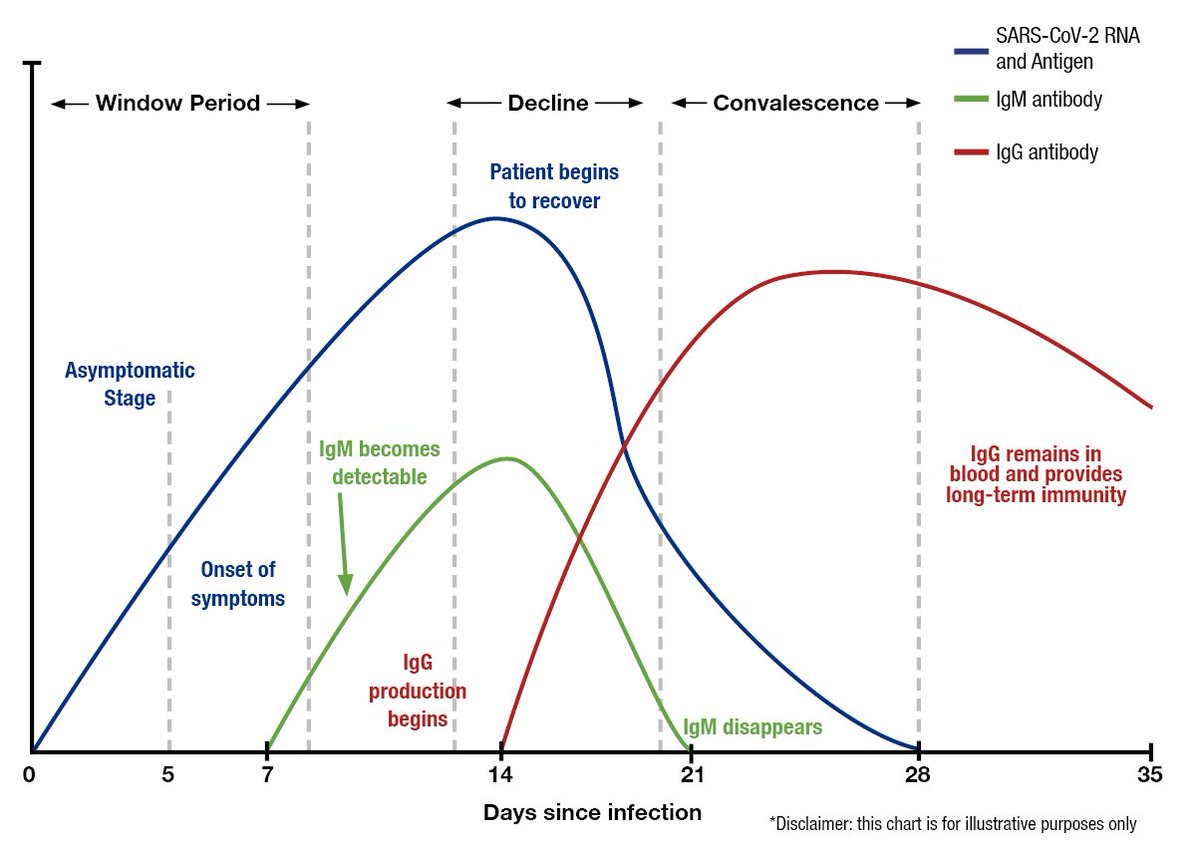The list of serological tests. Summary: tons of choices and very little quality control or standardization. What sensitivity / specificity you ask? Most of these companies don& #39;t publish it, and even if they do--is it translatable to real world? More: http://av.co/covid ">https://av.co/covid&quo...
Phew, this was a lot tougher than we anticipated.
1) What is this test? The serological test is a measure of a patient& #39;s immune system --it doesn& #39;t directly diagnose the disease.
2) That& #39;s great--will it then tell me if I& #39;m immune? It may--but only if the test is highly sensitive and specific to the response to that infection agent.
3) Each person& #39;s immune system is quite unique. The response is of polyclonal nature. Each clone of antibody has different physiochemical properties
4) The clonal makeup and composition = how individual& #39;s immune system sees an infectious agent depends on a) the genetic background of the person b) former encounters with various infectious agents => Rxn of a patient& #39;s serum not precisely predictable - ICMI
5) Also, the antigenic makeup of an infectious agent is not always foreseeable. Antigenic variations leading to different serotypes is a quite common phenomenon
6) That& #39;s a lot of bio, what about these tests? Can I take them, test positive and go back to work? MAYBE
7) Multiple studies: SARS-CoV-2 antibodies may not be detectable before 3 days after onset of symptoms or for up to 10 days after infection. But test result type illustration below (Source: Diazyme)
8) Test sensitivity and specificity ABSOLUTELY matter--is this test accurate? How often will you take this test also matters.

 Read on Twitter
Read on Twitter




